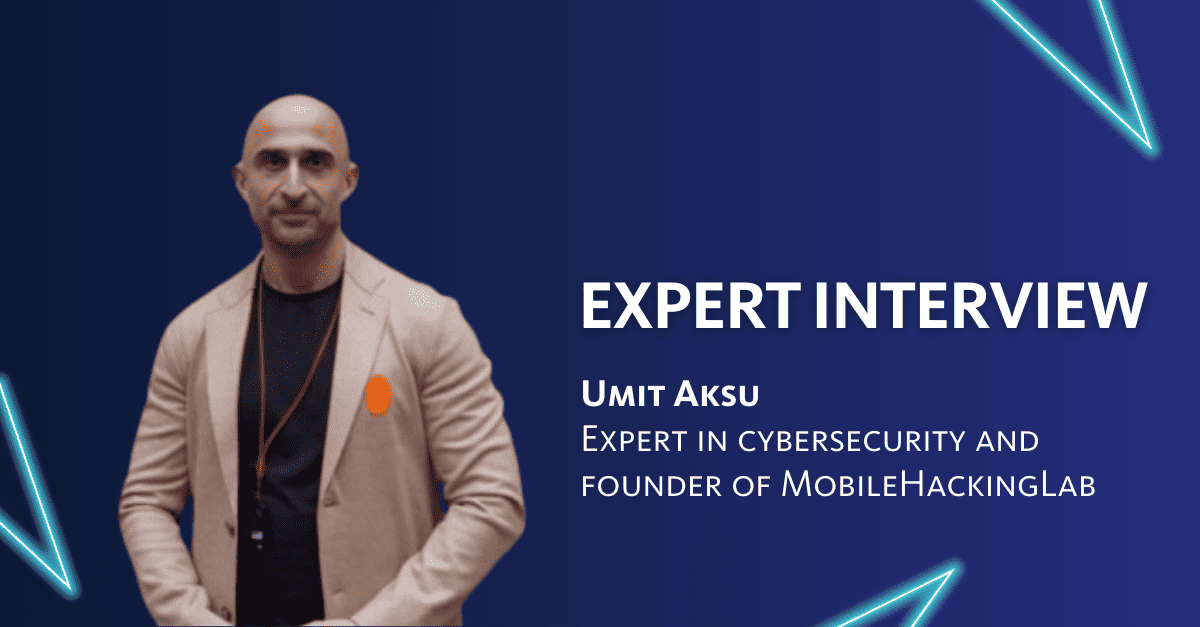Your smartphone knows more about you than you might realize—possibly even more than your own memory. It feels safe, familiar, almost like an extension of yourself. But is it really secure? As technology advances at breakneck speed, so do the threats that come with it. Cybercriminals are constantly finding new ways to access highly personal and sensitive data, often without you even noticing. And in this invisible battlefield, ethical considerations are becoming less and less of a priority.
Umit Aksu, cybersecurity expert and founder of MobileHackingLab, offers a rare look into the hidden dangers of mobile devices and the responsibility businesses have in protecting their data. His warning is clear:
“The smartphone in your hand is a potential weapon—against you.”
In this article, we explore the unseen risks, the ethical dilemmas surrounding vulnerability disclosures, and why companies must wake up before it’s too late.
Security is a mindset, not just a tool
As mobile technology becomes more integrated into business operations, it’s not enough to focus on performance alone—security must be a priority. Aksu stresses the importance of advanced Mobile Device Management (MDM) systems that go beyond basic functions. Many standard MDM solutions prioritize device management over security, creating a false sense of protection. “If a hacker gains access to your MDM, they control all your devices,” Aksu warns. “That means emails, files, apps—everything is exposed.”
Too many companies assume they are secure simply because they have an MDM in place. “I visit businesses that confidently claim they are protected, yet they rely on off-the-shelf MDM solutions that can’t stop even a moderately skilled hacker. The problem isn’t their willingness to invest—it’s that they don’t know where to start.” Security isn’t just about installing tools; it requires a strategic, proactive approach.
“A security system is only as strong as its weakest link. If that weak link is an outdated mobile app, then no amount of investment in firewalls will protect you.”
The invisible threats of mobile security
Even the most advanced organizations are vulnerable, often without realizing it. “I’ve seen global corporations convinced that their mobile networks were airtight,” says Aksu. “But all it took was one compromised app, and within minutes, their internal documents and customer data were accessible.” One of the biggest misconceptions is that mobile devices are inherently secure.
Many people assume they need to click on something malicious to be hacked, but Aksu warns of zero-click attacks—cyber intrusions that require no user interaction. “You don’t even have to open a message or answer a call. Simply receiving it can be enough to compromise your phone.” Even without zero-click exploits, cybercriminals can use seemingly harmless apps to access sensitive information.
“People often say, ‘I have nothing to hide.’ Until their private photos or passwords end up on the dark web.”
The ethical dilemmas of cybersecurity
Cybersecurity isn’t just about technology—it’s also a field full of ethical gray areas. What happens when a security researcher discovers a vulnerability that’s being exploited by a government for surveillance? Should they report it, potentially preventing cyberattacks? Or stay silent, knowing that exposing it might also compromise national security efforts?
“Every security fix has consequences,” says Aksu. “It might stop criminals, but it could also disrupt government operations or endanger intelligence agencies who rely on the same vulnerabilities to communicate safely. There are no easy answers.”
The human factor in cybersecurity
One of the most overlooked aspects of cybersecurity is human nature. Many hackers aren’t motivated by malice but by curiosity and the thrill of discovery. “The best hackers aren’t necessarily the ones with the most certifications,” Aksu notes. “They’re the ones who lose sleep trying to figure out how something works.”
Yet, many companies fail to nurture this kind of innovative thinking. “Corporate structures often limit security professionals, forcing them to test the same things over and over. That kills creativity. And when they get frustrated, they leave—for companies that give them the freedom to explore.” Some tech giants, like Google, allow security researchers to experiment without excessive red tape, helping them uncover critical vulnerabilities before hackers do.
“If you want to attract and retain top cybersecurity talent, you need to let them push boundaries. If you don’t, they’ll find places that do—or worse, they’ll end up working for the other side.”
Time to take action
Aksu urges businesses and individuals to take security seriously—before it’s too late. “Too many companies still think, ‘It won’t happen to us.’ Until it does. And then they scramble.” “Cybersecurity isn’t just an IT problem; it’s a business problem. A breach doesn’t just shut down your systems—it destroys your reputation, your finances, and your customer trust.”
His message is clear: security is everyone’s responsibility, not just that of companies or governments. As we become increasingly interconnected, protecting personal and corporate data is a shared duty.
“You can wait until disaster strikes, or you can act now. But if you wait, be prepared for the consequences.”


